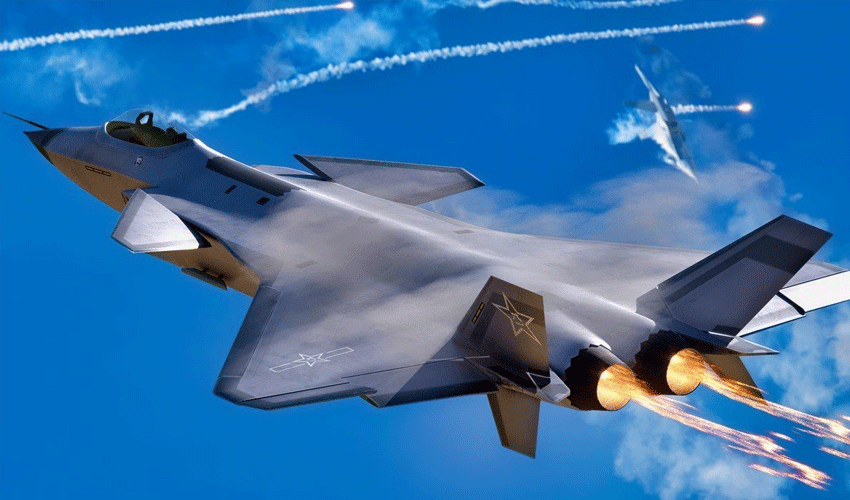Chengdu Aircraft’s stock surges following Pakistan’s destruction of five Indian jets.

The financial market experienced a significant increase in the shares of Chengdu Aircraft Corporation, the Chinese producer of JF-17 Thunder and J-10C fighter jets, subsequent to a decisive military action by the Pakistan Air Force (PAF) in response to Indian aerial aggression.
The PAF downed five Indian aircraft and drones, comprising three Rafale jets, in a retaliatory operation that has reverberated through military and financial sectors.
The 18.18% rise in Chengdu Aircraft Corporation’s shares signifies the increasing global acknowledgement of Chinese-manufactured fighter jets following the Pakistan Air Force’s notable response.
This notable increase followed the Indian Air Force (IAF) executing a lethal bombing on six distinct locations in Pakistan, leading to 26 fatalities and 46 injuries, which included assaults on mosques. The IAF’s airstrike intensified the existing tensions between the nuclear-capable nations.
In reaction to Indian aggression, the PAF executed a thorough counteroffensive, effectively intercepting and obliterating five Indian aircraft.
Among those destroyed were three Rafale jets, considered among the most modern combat aircraft globally. A MiG-29 and a Sino-Japanese fighter plane were also destroyed.
The assault constituted a substantial setback to India’s aerial dominance, which had been enhanced by the recent procurement of Rafale fighters from France.
The loss of these advanced jets has reverberated throughout global defence markets. Chengdu Aircraft Corporation, recognised for manufacturing the JF-17 Thunder—one of Pakistan’s principal combat aircraft—and the J-10C, has witnessed a significant increase in its stock price. The increase is due to heightened confidence in Chinese-manufactured aircraft, especially after the successful performance of the JF-17 Thunder, which was pivotal in the Pakistan Air Force’s rapid response.
Conversely, shares of Dassault Aviation, the French producer of Rafale warplanes, have experienced a significant decline. The French company’s shares declined markedly on the Paris-based Varpi stock market, indicating market apprehensions regarding the subpar performance of the Rafale aircraft in the current combat. The loss of three Rafales has prompted enquiries regarding the efficacy of these modern planes, intended to bolster India’s aerial defence capabilities.
India paid billions of dollars on procuring Rafale fighters, deeming them transformative for its air force. However, the recent defeat at the hands of the PAF has raised doubts about the aircraft’s effectiveness in combat situations, particularly against well-coordinated air operations such as those executed by Pakistan.